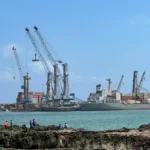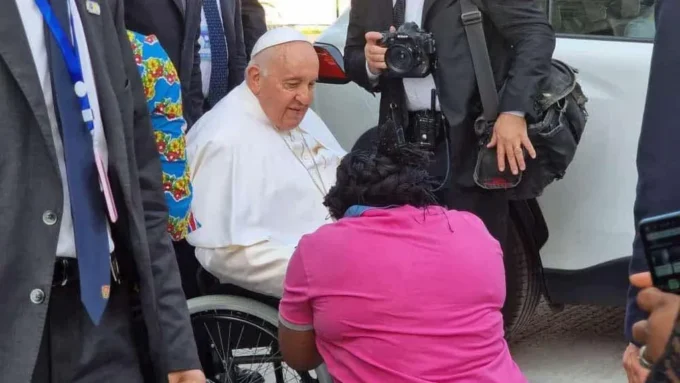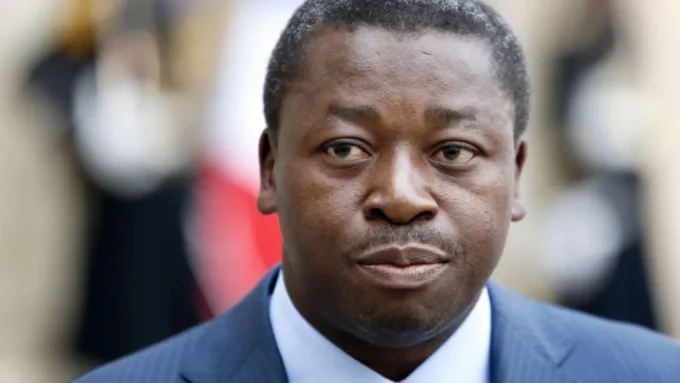Burkina Faso’s military junta has claimed it has uncovered an international plot aimed at destabilizing the regime, linking the conspiracy to the massacre of hundreds of civilians by Islamist insurgents in August. The attack, which took place in the town of Barsalogho, was one of the deadliest in recent memory, deepening concerns about security in the West African nation. However, critics argue that the junta’s accusations are an attempt to deflect responsibility for its failure to protect civilians in areas plagued by jihadist violence.
The junta, which came to power in a 2022 coup with promises of addressing the escalating security crisis, has struggled to contain the violence that has swept through the country for years. The landlocked nation has been under siege by Islamist insurgents affiliated with al-Qaeda and ISIS, with attacks growing more frequent and brutal since the military takeover. This surge in violence has raised concerns about the regime’s ability to maintain control, as it faces growing dissatisfaction among the population.
The Barsalogho massacre, which took place on August 24, saw insurgents slaughter hundreds of civilians who had been ordered by the military to dig defensive trenches around the town. Many were left unprotected in an area known for its high levels of jihadist activity, leaving them vulnerable to the deadly attack. The brutality of the incident prompted an unusually open expression of anger and grief from local communities, with calls for the junta to take responsibility for its role in the tragedy.
Yet, in a statement released on Monday, interim security minister Mahamadou Sana claimed that the attack was not simply a result of the ongoing insurgency but rather the first step in a larger international plot to overthrow the regime. Sana alleged that the attack was meant to create chaos and facilitate the infiltration of multiple terrorist groups into the capital, Ouagadougou. The statement went on to accuse opponents of the junta, backed by Western intelligence agencies and European mercenaries, of orchestrating a destabilization campaign from neighboring countries, including Ivory Coast, Ghana, and Nigeria.
Despite these serious allegations, the junta provided no evidence to support its claims. Among those named as part of the supposed conspiracy was Newton Ahmed Barry, a prominent investigative journalist and outspoken critic of the military government. Barry took to social media to reject the accusations, calling them an attempt to distract from the junta’s failure to prevent the Barsalogho massacre. “After Barsalogho, they needed to find a diversion given the scale of the tragedy,” Barry wrote in a Facebook post.
Several civil society members and analysts agree with Barry’s interpretation of the junta’s claims, suggesting that the regime is attempting to shift blame for its shortcomings in addressing the security situation. One analyst, speaking on condition of anonymity for fear of retaliation, described the accusations as “a vulgar attempt to deflect responsibility for what happened” and to cast the opposition as allies of the al-Qaeda-affiliated group that claimed responsibility for the Barsalogho attack.
The junta’s allegations also come amid rising tensions between Burkina Faso and its neighbors, particularly as the region grapples with growing instability and the spread of jihadist violence. The military government has aligned itself with other West African juntas, such as those in Mali and Niger, in an effort to stave off foreign influence and bolster regional security. However, the lack of evidence behind the latest accusations raises concerns about the junta’s motives and its ability to address the internal security challenges that have worsened since it took power.
As Burkina Faso continues to face relentless attacks from Islamist insurgents, questions remain about the junta’s ability to deliver on its promise to restore security and protect the population. With violence increasing and frustrations mounting, the regime finds itself under pressure to prove its effectiveness, even as it points fingers at external actors. The situation highlights the broader challenges facing West Africa, as the region contends with complex security threats that require more than military force to resolve.














Leave a comment